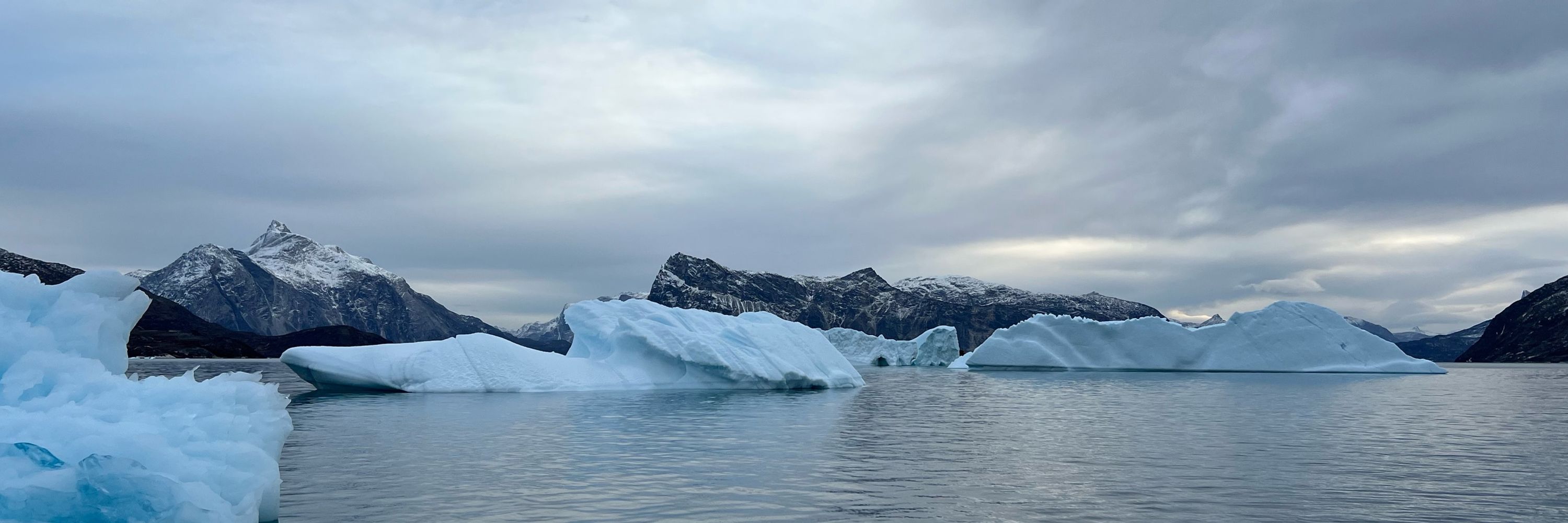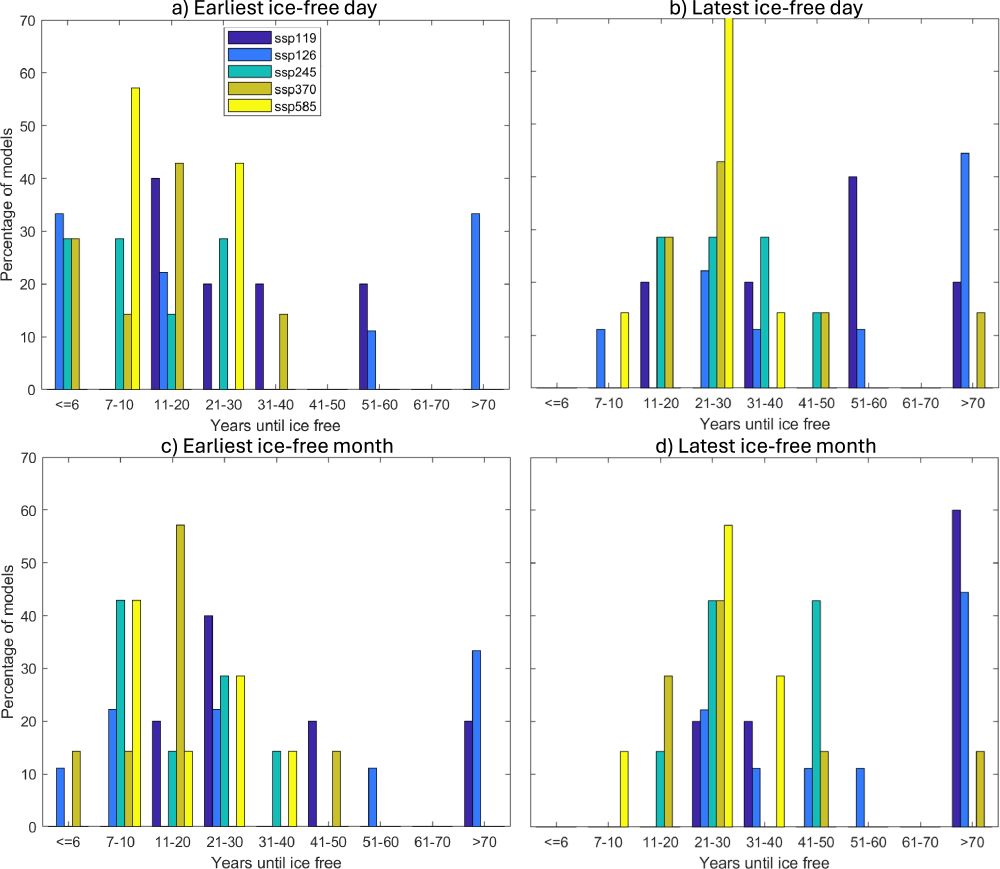
Alexandra Jahn
@seaiceclimate.bsky.social
Climate scientist with focus on the Arctic Ocean and Professor at CU Boulder. Opinions my own. New here
Reposted by Alexandra Jahn
INSTAAR fellow Alexandra Jahn @seaiceclimate.bsky.social has spent more than a decade studying sea ice and how it's changing in the 21st century. Last year, she visited an arctic community that is feeling those changes first hand. theconversation.com/a-walk-acros...

A walk across Alaska’s Arctic sea ice brings to life the losses that appear in climate data
A polar scientist explains the changes hunters who rely on the ice are seeing off Utqiagvik, and how those shifts are echoed in satellite data and climate models.
theconversation.com
September 24, 2025 at 7:39 PM
INSTAAR fellow Alexandra Jahn @seaiceclimate.bsky.social has spent more than a decade studying sea ice and how it's changing in the 21st century. Last year, she visited an arctic community that is feeling those changes first hand. theconversation.com/a-walk-acros...
Reposted by Alexandra Jahn
RECCS is a paid summer research internship program open to community college students in Colorado, Nebraska, Wyoming, Utah, New Mexico, and Kansas. Applications for Summer 2025 are due by Feb. 9, 2025: https://buff.ly/3DOY0Y7
@ciresceee.bsky.social @colorado.edu
@ciresceee.bsky.social @colorado.edu

January 13, 2025 at 4:00 PM
RECCS is a paid summer research internship program open to community college students in Colorado, Nebraska, Wyoming, Utah, New Mexico, and Kansas. Applications for Summer 2025 are due by Feb. 9, 2025: https://buff.ly/3DOY0Y7
@ciresceee.bsky.social @colorado.edu
@ciresceee.bsky.social @colorado.edu
Reposted by Alexandra Jahn
🔊 ALEXANDRA JAHN @seaiceclimate.bsky.social speaks with KUNC's Erin O'Toole about predicting when the 1st ice-free *day* on the Arctic Ocean might occur. Jahn & @clnhz.bsky.social found it could happen within 3-20 yrs, an ominous milestone
Listen to 9 min interview: www.kunc.org/podcast/inth...
Listen to 9 min interview: www.kunc.org/podcast/inth...

An ice-free day on the Arctic Ocean? It’s coming sooner than we realized, a CU researcher says
The Arctic Ocean is one of the coldest regions on the globe. But a CU researcher says that some day soon, the Arctic will see its first day in which all of the sea ice has melted due to rising global ...
www.kunc.org
December 17, 2024 at 9:12 PM
🔊 ALEXANDRA JAHN @seaiceclimate.bsky.social speaks with KUNC's Erin O'Toole about predicting when the 1st ice-free *day* on the Arctic Ocean might occur. Jahn & @clnhz.bsky.social found it could happen within 3-20 yrs, an ominous milestone
Listen to 9 min interview: www.kunc.org/podcast/inth...
Listen to 9 min interview: www.kunc.org/podcast/inth...
There is a small chance that the first sea ice free day in the Arctic Ocean could occur before 2030 if the right sequence of weather events occur, based on #CMIP6 models. rdcu.be/d2gBK www.colorado.edu/today/2024/1... @clnhz.bsky.social @naturvetenskap.bsky.social @colorado.edu @instaar.bsky.social

The first ice-free day in the Arctic Ocean could occur before 2030
Nature Communications - The first day with no sea ice in the Arctic will be a visible sign of climate change. This work reveals that this could occur before 2030 already and becomes more likely as...
nam10.safelinks.protection.outlook.com
December 3, 2024 at 1:48 PM
There is a small chance that the first sea ice free day in the Arctic Ocean could occur before 2030 if the right sequence of weather events occur, based on #CMIP6 models. rdcu.be/d2gBK www.colorado.edu/today/2024/1... @clnhz.bsky.social @naturvetenskap.bsky.social @colorado.edu @instaar.bsky.social
New paper alert: While ice-free conditions in September are now likely unavoidable, with first ice-free days possible within the next decade & likely before 2050, future emissions will determine how frequently & for how long the Arctic will be ice-free. rdcu.be/dApgx
March 5, 2024 at 6:46 PM
New paper alert: While ice-free conditions in September are now likely unavoidable, with first ice-free days possible within the next decade & likely before 2050, future emissions will determine how frequently & for how long the Arctic will be ice-free. rdcu.be/dApgx

